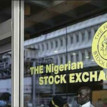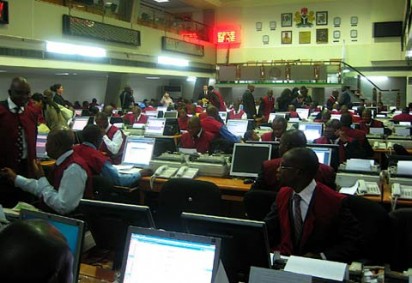Domestic investors dominate equity market in Q1’20 - Basic Storylines

Investment level up 89%
Development will restore market stability – analysts
By Nkiruka Nnorom

LOCAL investors are taking advantage of the incredibly low prices of stocks in the Nigerian Stock Exchange, NSE, to increase their investments following the prolonged downward movement in equity valuation since the advent of the coronavirus, COVID-19, pandemic on the Nigeria’s economy.
Data on domestic and foreign portfolio participation in the NSE equity market shows that domestic investors committed N374.98 billion in the market at the end of the first quarter of the year (Q1’20), representing an increase of 89 percent compared to N198.39 billion in the previous quarter in 2019.
This also represents 59.82 percent contribution to total investment (N626.87 billion) pooled in the first quarter of the year and 32.8 percent higher than N251.87 billion invested by foreign investors. Research analysts and securities dealers, who spoke to Financial Vanguard, attributed the development to search for a viable investment option by local investors.
They explained that local investors are increasingly pitching their tent in equities market due to the attractive dividend yield in the market coupled with low yield environment in the fixed income market. They observed that the development is good for the local bourse, saying that it would restore credibility and stability to the market, which was hitherto marred by volatility occasioned by the activities of foreign investors.
READ ALSO:COVID-19: Buhari, PTF meet in Abuja
“It is a good thing that domestic interest is building in the market; it is really positive. This is what we have been clamouring for, where the local investors will be the drivers of the market. What we, typically, see is that domestic investors follow the investment pattern of the foreign investors whereby if we see that they are buying, we will buy and if we find out they are selling, we will sell.
“Domestic investors are not driving the market and that is why sometimes, you see that some stocks are trading at crazy multiples where they shouldn’t be. Now, that we are seeing a lot of domestic participation, that will bring some sort of credibility and relative stability in the market,” said Jerry Nnebue, a research analyst at Cardinalstone, a Lagos-based investment banking firm.
He, however, said that the overall macroeconomic framework and environment mute the excitement that comes from increased domestic participation.
Domestic vs foreign participation
Analysis of the domestic and foreign portfolio participation in equity for the period, showed an increasing participation by both institutional and retail domestic investors amidst increased withdrawal by foreign investors.
Within the period, domestic retail investors upped their stakes by 74.8 percent to N171.45 billion from N98.1 billion in Q1’2019.
Also, domestic institutional investors increased their stake by 103 percent to N203.53 billion in Q1’20 from N100.29 billion in Q1’19. On a month-on-month basis, total domestic investors improved by 72 percent to N132.69 billion in March compared to N77.16 billion in February, 2020.
Domestic retail investors’ participation rose by 104 percent to N60.23 billion in March from N29.56 billion in February, while domestic institutional investors’ participation increased by 52.2 percent to N72.46 billion from N47.6 billion in February.
Meanwhile, foreign portfolio outflow widened by 50.2 percent to N186.6 billion in Q1’20 from N124.24 billion in Q1’19. On the contrary, foreign portfolio inflow fell by 33.1 percent to N65.27 billion from N97.63 billion.
Analysts’ position
Nnebue, reflecting on the dynamics of domestic investor participation as against their foreign counterpart, said: “In the last couple of months, we have been seeing more of domestic investors’ interest in the equities market and this is because we have not been seeing enough of foreign investors’ participation and that in a way is pushing up domestic investment. A lot of the domestic investors that had investment in OMO Bill are no longer able to re-invest in OMO instrument.
“Secondly, prices in the market are depressed at the moment.
They are really so low and in reality, investors have very little alternatives to put their money with the instability in the system and if you also consider that interest rate is incredibly low. Because of the fact that prices in the equities market are low, some domestic investors are trying to increase their stake.
Do not forget that because of the way things are, there are lots of speculations. Market players are, actually, speculating.
“Of course, we are also seeing a lot of interest and participation from those that want to spend in the long term. Prices are cheap; so what we are seeing is investors buying so that when prices go up, they will take profit.”
He, however, said that the increased interest by the local investors might not be sustained because people are still playing safe pending the discovery of cure for COVID-19. “I do not see this as something that is very sustainable because everyone is being cautious; everybody is trying to be careful at the moment.
The calculation is that companies are not going to perform well this year.
“So, as soon as the results start coming in or may be there is a bad news in Nigeria for instance, of increasing COVID-19 cases, it is going to impact on the market,” he said.
Speaking on what could sustain domestic investors’ interest, Nnebue said: “Investors should look at the big conversation and the biggest driver at the moment is COVID-19.
So, there is very little the fiscal authority can do because nobody knows how bad things can get. What will be the biggest game changer in the equities market is if we hear that there is a cure for COVID-19 or we hear that the health authority has been able to contain the spread of the virus in Nigeria so that we are not seeing a lot of commoners’ transmission.
“What the fiscal authority has been trying to do is to re-inject life into the economy but there will be no activity if everybody is on lockdown, if we are seeing a lot of cases.”
Agreeing with him, Ayodeji Ebo, Managing Director, Afrinvest Securities, said: “For the domestic investors, what has been driving their interest is the low prices of equities vis-a-viz low fixed income yield environment coupled with the fact that the dividend yield of most of the stocks are in double digit. So, a lot of domestic investors are taking advantage of the lower price to invest in equities rather than investing in fixed income.
“Most of the domestic investors, both for retail and institutional investors are buying for the long term. They are not buying for speculation. What I see is that if this would be sustained, it is going to be good for our market. It is going to reduce the volatility in the market.”
Ebo stated that more participation is needed from the Pension Fund Administrators, PFAs, to strengthen the contribution of domestic investors as, according to him, “As at today, the participation from PFAs is not strong.”
He stated further: “For the foreign investors that have been pulling out, the concern is the safety of funds, as well as the global challenge. So, they are moving their funds to safer havens relative to leaving it in Nigeria. That is why you see that even the activity they are having is more of outflow that inflow.”
Also explaining the massive foreign investment outflow, analysts at FBNQuest, an investment banking arm of the First Bank Group, said: “What is missing in the Nigerian equities story are both healthy GDP/consumption growth, and a track record of market-friendly reforms by the government.
“Nigeria has not posted robust growth since 2014. Household spending has therefore been squeezed, undermining the case for non-bank stocks,” they said.
The post Domestic investors dominate equity market in Q1’20 appeared first on Vanguard News.
Comments
Post a Comment